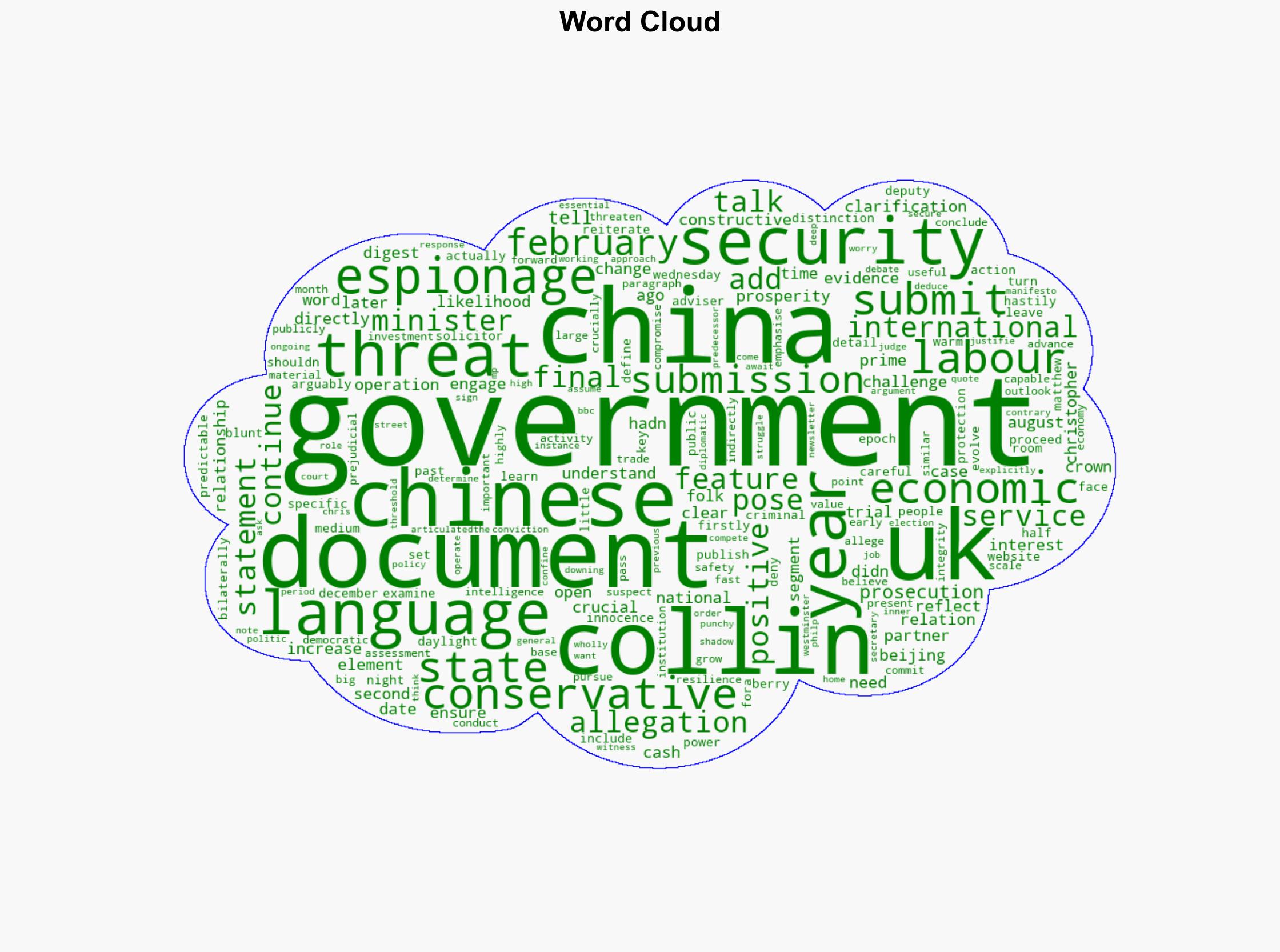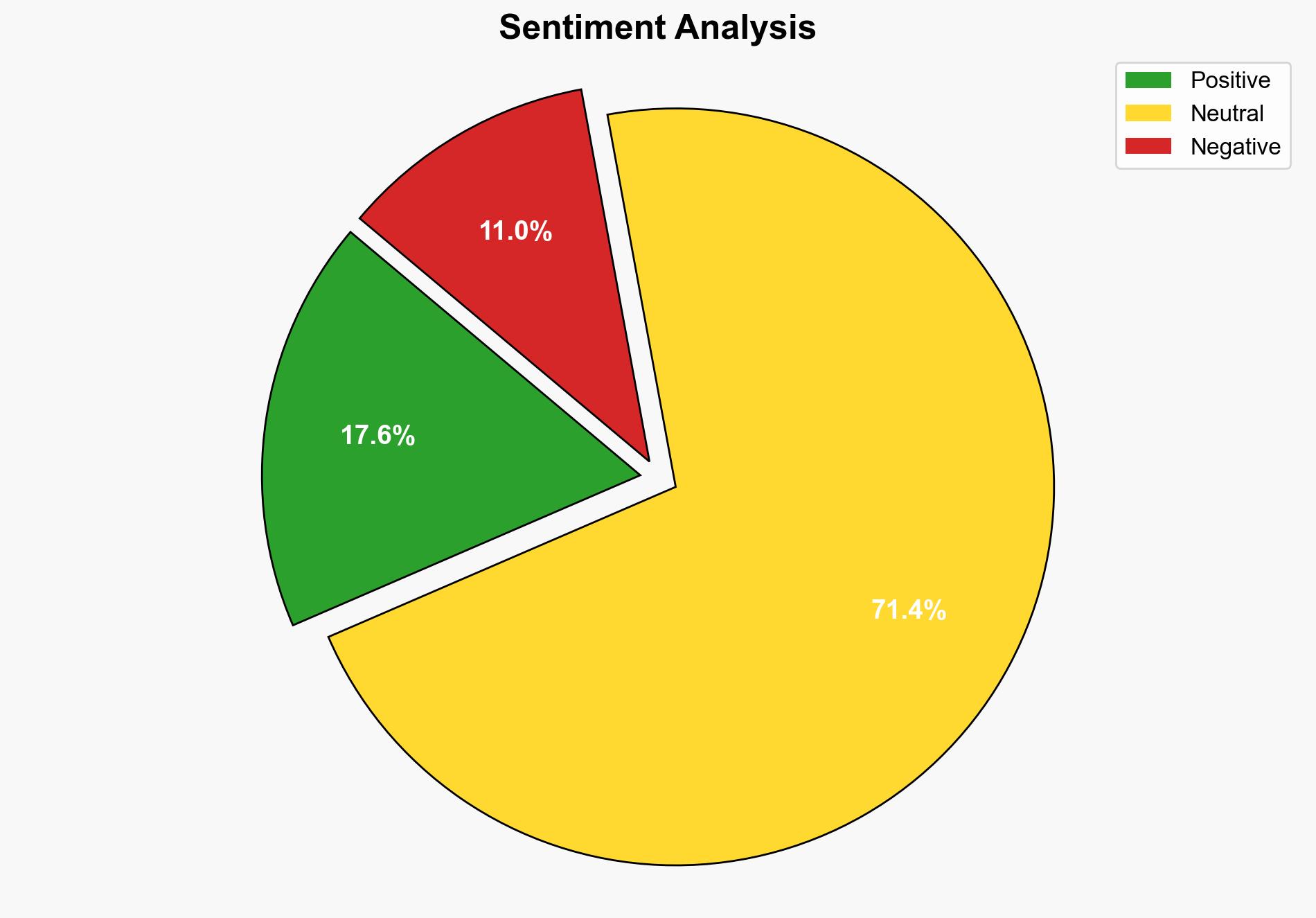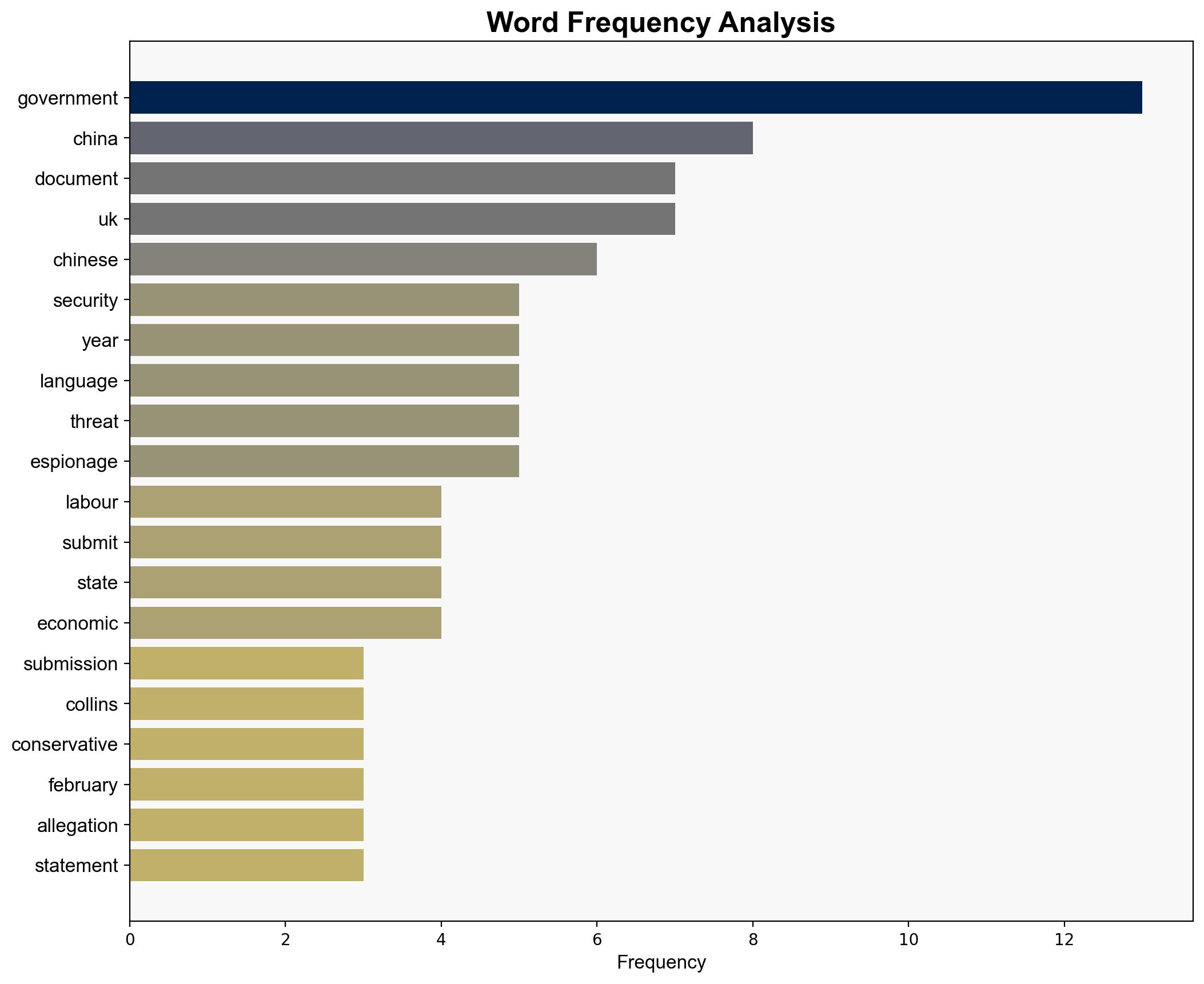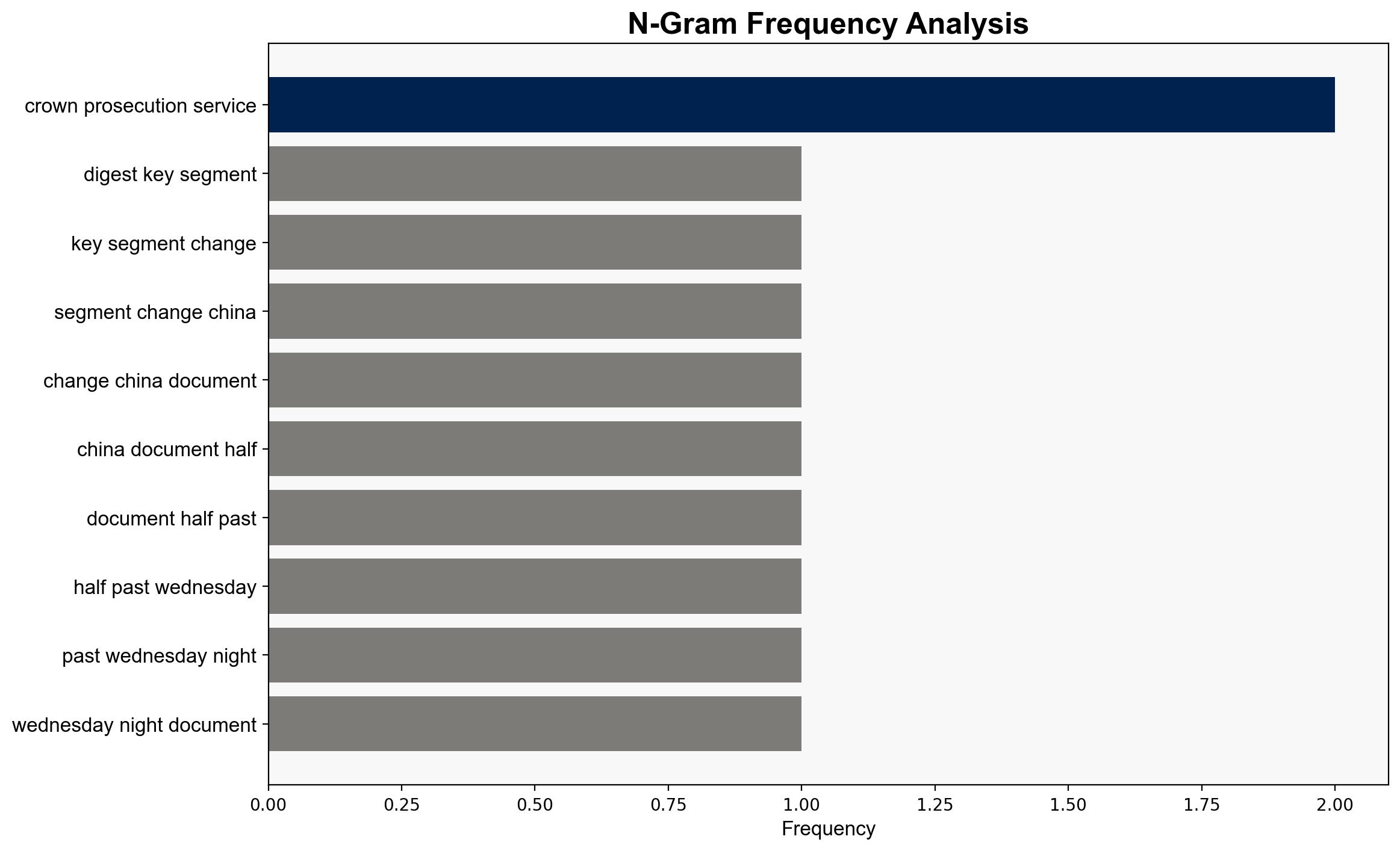Chris Mason Digesting the key segments and changes in China documents – BBC News
Published on: 2025-10-16
Intelligence Report: Chris Mason Digesting the Key Segments and Changes in China Documents – BBC News
1. BLUF (Bottom Line Up Front)
The analysis suggests that the UK’s evolving stance towards China reflects a strategic recalibration in response to perceived espionage threats. The most supported hypothesis is that the UK government is attempting to balance national security concerns with economic interests. Confidence Level: Moderate. Recommended action includes enhancing intelligence-sharing frameworks with allies and revisiting trade policies to mitigate risks.
2. Competing Hypotheses
1. **Hypothesis A**: The UK government is primarily focused on countering Chinese espionage activities, leading to a more cautious and defensive posture in diplomatic relations.
– **Supporting Evidence**: The language in government documents emphasizes the threat posed by Chinese intelligence operations and the need for increased national security measures.
2. **Hypothesis B**: The UK government is seeking a balanced approach, maintaining a firm stance on security while still pursuing economic engagement with China.
– **Supporting Evidence**: Despite security concerns, recent documents include language about pursuing positive economic relationships, indicating a dual-track strategy.
Using ACH 2.0, Hypothesis B is better supported due to the inclusion of economic engagement language, suggesting a nuanced approach rather than a purely defensive one.
3. Key Assumptions and Red Flags
– **Assumptions**: It is assumed that the UK government has reliable intelligence on Chinese espionage activities. The economic benefits of engaging with China are presumed to outweigh potential security risks.
– **Red Flags**: Inconsistent language in government documents over time may indicate internal disagreements or evolving strategies. The absence of clear evidence linking specific individuals to espionage activities raises questions about the strength of the allegations.
4. Implications and Strategic Risks
– **Economic Risks**: Overemphasis on security could strain economic ties, impacting trade and investment.
– **Geopolitical Risks**: A hardline stance may provoke retaliatory measures from China, affecting bilateral relations and regional stability.
– **Cybersecurity Risks**: Increased espionage activities could lead to heightened cyber threats, necessitating robust countermeasures.
5. Recommendations and Outlook
- Enhance intelligence-sharing with international partners to better understand and counter Chinese espionage activities.
- Develop a comprehensive strategy that balances security concerns with economic interests, potentially through targeted trade agreements.
- Scenario Projections:
- Best Case: Strengthened security measures deter espionage without harming economic relations.
- Worst Case: Escalation of tensions leads to economic sanctions and cyber conflicts.
- Most Likely: Continued diplomatic engagement with cautious security enhancements.
6. Key Individuals and Entities
– Matthew Collins
– Christopher Cash
– Christopher Berry
7. Thematic Tags
national security threats, cybersecurity, counter-terrorism, regional focus




